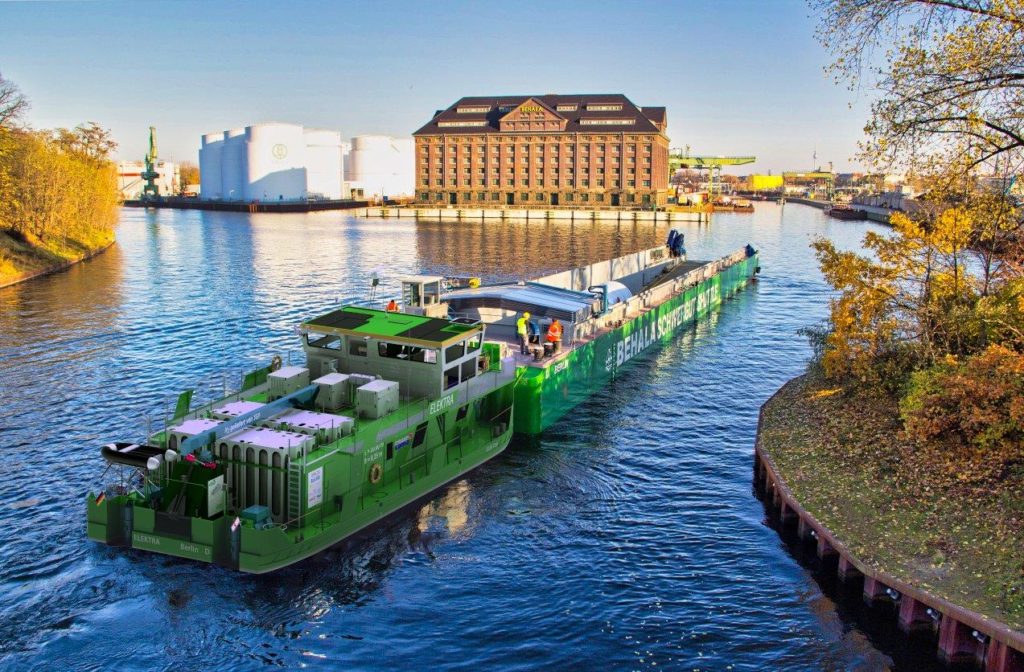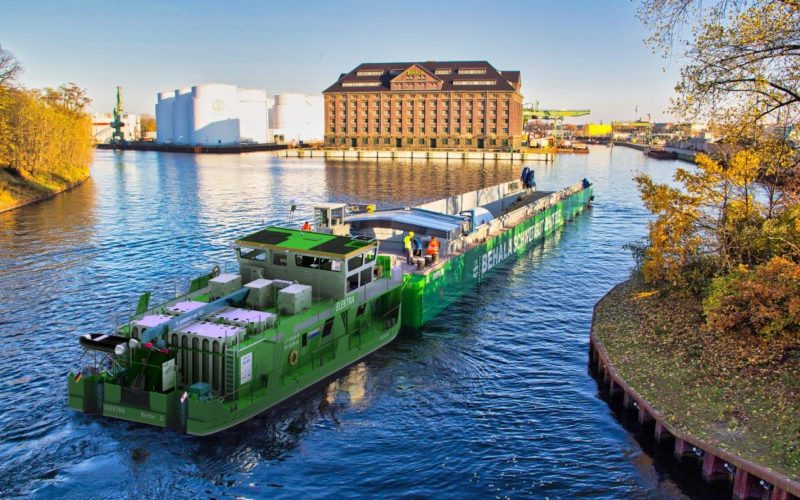(BERLIN) — In Berlin’s Westhafen, Mayor Franziska Giffey christened the pushboat Elektra. After almost two years of construction at shipyard Hermann Barthel GmbH in Derben and the transfer to the Westhafen in Berlin, the long-term testing of this unique, innovative and emission-free vessel begins.
“(Elektra) is the world’s first pushboat in which battery-electric propulsion is combined with hydrogen and fuel cell technology,” said federal minister Dr. Volker Wissing, who spoke about the importance of hydrogen mobility to achieve the German government’s climate protection goals. “The entire project is a blueprint for the climate and environmentally friendly inland shipping, not only technically but also in terms of regulation real pioneering work.”

Under the management of the Department of Maritime Systems Design and Operations at the Technical University of Berlin, partners in the project include Berliner Hafen- und Lagerhausgesellschaft (BEHALA, logistics), shipyard Hermann Barthel, Ballard Power Systems (fuel cells), Argo-Anleg (hydrogen system), Schiffselektronik Rostock (SER, electrical energy system), EST-Floattech (battery system) and HGK Shipping (nautical operation).
Elektra’s power system is designed to be applicable to a variety of barges and coastal vessels. In addition to propulsion, the system provides energy for the temperature control of the cabins and the wheelhouse. The waste heat from the fuel cells is used through continuous water cooling, and the cabins are heated by a brine heat pump.
With 750 kilograms of gaseous hydrogen (at a pressure of 500 bar) on board and a battery capacity of approximately 2,500 kilowatt hours, the ship has a range of approximately 250 miles when sailing in combination with the loaded heavy-lift barge Ursus.
Only one land-based station is needed to supply Elektra with hydrogen and electricity to sail on the waterways of Berlin in the direction of the Rhine/Ruhr, Hamburg and Stettin. The vessel can operate push-barge combinations up to 490 feet in length.
The first stations for the changeover of hydrogen tanks and 500-kilowatt electric charging stations will be operational in Berlin’s Westhafen as well as in the Port of Luneburg in 2023.
The TU Berlin has contracted Mittelelbe Business Park and H2 Green Power & Logistics for filling and transporting the tank systems (multiple energy gas container, MEGC) with green hydrogen until the end of the Elektra project at the end of 2024.
The MEGC can be exchanged with the onboard crane and the power connection runs via a loading beam that guides the cables to land. This makes the handling of the arm-thick cables easy for the vessel’s crew. The vessel can be quickly connected to the charging station and the quayside is free of cables.
Testing of Elektra will initially take place in the Berlin region. As of 2023, tests will also be continued on long-distance routes toward Hamburg.
– EST-Floattech

